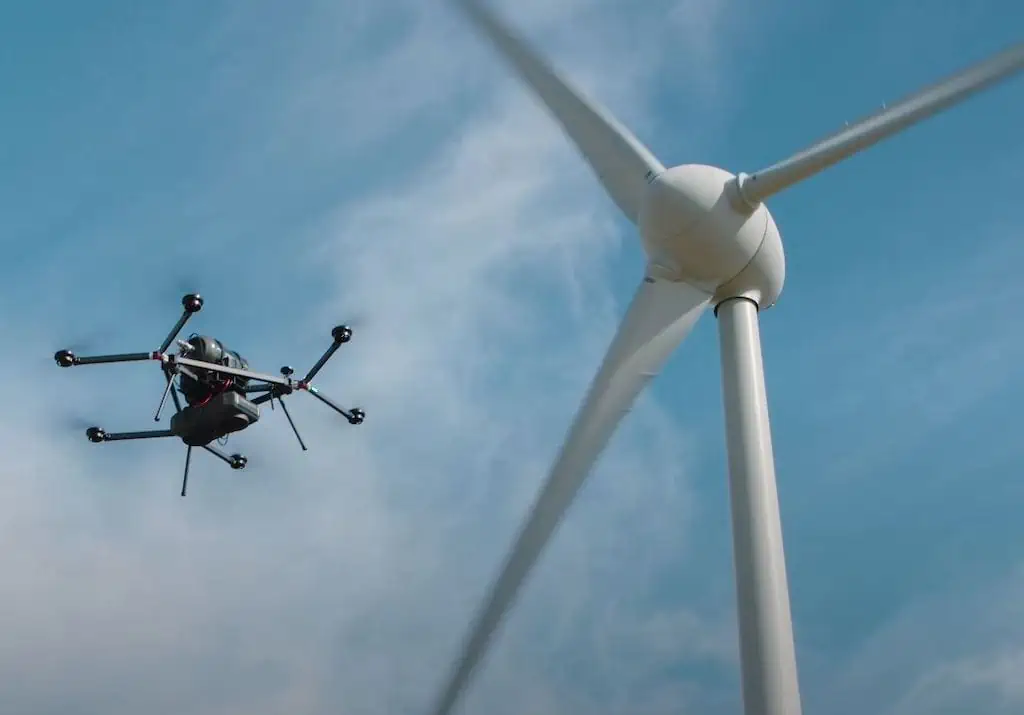
Intelligent Energy designs and manufactures fuel cells that are reportedly lower maintenance, quieter, and have lower vibration than internal combustion (IC) engines. Read more >>
The company’s IE-SOAR™ fuel cell modules aim to illustrate why fuel cells have become a good alternative to battery power for many commercial UAV operators, with fuel cells having benefits such as:
- Longer flight time
- Improved redundancy
- Quicker refuelling compared to battery charging times
- Better environmental credentials
What problems do commercial UAV operators typically face with their drones?
Commercial UAV operators, such as those working in the inspection, mapping, and cinematography sectors, are often limited by the flight time capabilities of battery powered drones.
Fortunately, this is where fuel cell powered drones can help, and Intelligent Energy has expanded on some of the benefits of fuel cells for commercial UAV use below.
Fuel cell powered drones fly for longer
The headline benefit of drones powered by fuel cells is that, compared to those powered by batteries, they can fly for much longer due to their lightweight characteristics.
The company’s Gryphon drone was used at the 2022 Sail GP to broadcast the event and it was able to carry the 6kg cinematography payload for the entire 90 minute broadcast window, while staying under the 25kg regulatory limit.
This extra flight time enables new applications that were previously impossible with drones, such as shore launched windfarm inspection, inspection of linear power lines and the filming of live sporting events.
The superior flight duration of IE-SOAR fuel cell powered drones means that they are ideal for applications where extended flight time or range is necessary, in particular BVLOS applications.
Experience less downtime with a fuel cell powered drone
When fuel cell technology is combined with drone platforms, operational efficiency is improved due to the extended flight time that fuel cells can offer, coupled with the ease and reduced frequency of refuelling.
You spend more time in the air completing your mission then, upon landing, the hydrogen cylinder is replaced or refuelled in a matter of minutes and therefore reducing costly idle time.
For example, LiDAR and mapping applications suit fuel cell powered drones over other power alternatives as the increased duration of the platform enables the mapping of larger environments, with fewer refuelling stops. This means the UAVs spend longer in the air and fewer calibration runs are needed.
Clean energy with drones powered by fuel cells
Fuel cell powered drones produce zero emissions and require only hydrogen and ambient air to produce power. You can learn more about how they work in Intelligent Energy’s article explaining the technology here, but essentially, IE-SOAR powered drones offer commercial UAV operators the unique benefit of green, sustainable power, keeping commercial carbon footprints down and protecting the environment.
Fuel cell powered drones offer a range of benefits for commercial UAV operators, and the IE-SOAR range aims to lead the way across a whole number of sectors, ranging from logistics, media, military and surveillance.
Read the full article, or visit Intelligent Energy’s website for more information.









